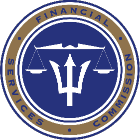

Building a Stronger Jurisdiction Through Enforcement
The Financial Services Commission (the “Commission”) was established in April 2011 as regulator of the island’s non-bank financial sector under the Financial Services Commission Act (FCSA), 2010-21. Over the years we have sought to enhance and strengthen our regulatory framework such that the Commission has adopted a more risk-based approach to supervision of its licensees and registrants in the credit unions, insurance, occupational pensions and securities sectors. As business across these sectors continues to grow, it is essential that there is compliance with established regulatory standards to maintain integrity of the financial system and protection of consumers and investors.
The Commission has wide-ranging powers to enforce the provisions of the FSCA and Specified Enactments, including acting against regulated entities for breaches of or non-compliance with applicable laws, guidelines, rules, and regulations. The Commission also derives its authority to enforce from the Money Laundering and Financing of Terrorism (Prevention and Control) Act, 2011-23 and the AML/CFT & PF Guideline 2021, as amended.
In highlighting reasons for the FSC utilising enforcement as a pillar of sector stability, General Counsel Sade Jemmott articulated that “While enforcement is sometimes seen as a punitive action, a regulator who effectively and proportionately utilises its enforcement power helps to deter misconduct, promote financial stability and foster public awareness and confidence.” She further added that such action supports the provision of credible financial services and helps in maintaining fair and efficient markets. Non-compliance presents reputational risks for the related entity, the sector and Barbados as a jurisdiction.
Depending on the circumstances, the Commission may exercise a wide range of enforcement powers, which may include one or more of the following actions:
- issue a request for information
- issue a reprimand or warning
- issue a Directive
- revoke a license
- cancel the registration of a regulated entity
- suspend or cancel a certificate of registration
- seize management or control of a regulated entity
- reorganise or wind-up a regulated entity
- pursue civil convictions
- recommend Criminal Prosecution or
- take ‘any other action’ necessary to properly discharge its functions
The Commission receives information from a variety of sources that may prompt an investigation and can result in some type of enforcement action. These include newspaper articles, tips from well-placed sources or whistle-blowers, complaints from the public, supervisory activities, and referrals from other government agencies or Self-Regulated Organisations.
The types of supervisory interventions the Commission may take are prescribed on a graduated basis of severity depending on the nature of the non-compliance and are designed to have a direct impact on improving compliance outcomes. Under the applicable regulatory framework, penalties for non-compliance may range from $10,000 to $100,000.00 and/or imprisonment.
Enforcement is, therefore, an important regulatory tool that not only enables the Commission to impose penalties for contraventions but also to direct remedial action where required and pre-empts potential breaches of applicable legislative requirements.
Visit our website and social platforms to learn more about enforcement and other regulatory actions as part of our public education series. You are encouraged to play your part in protecting your savings and investments by contacting the Commission to share your tips, referrals or complaints if you suspect that an entity may be in breach of the applicable legislation.



